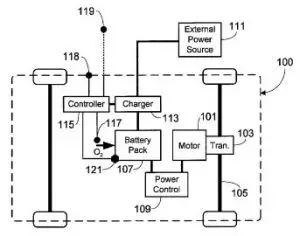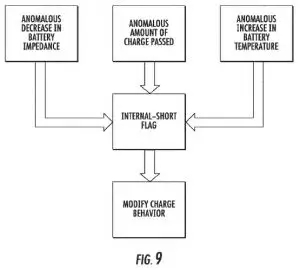The early spring has certainly been quite sunny for Palo Alto, CA-based automaker and energy storage company Tesla Inc.. On Monday, April 5th, The New York Times reported that Tesla had surpassed Dearborn, MI-based automaker Ford Motor Company in terms of market capitalization, pushing past Ford’s $45.6 billion market cap to hit a $51.2 billion market cap. The following day, shares of Tesla passed $300 per share after having gained 20 percent over the past few months alone. As of the writing of this article Tesla shares sit at an impressive $323.79.
Analysts and financial journalists alike continue to point to tremendous upside at Tesla, which goes beyond the company’s ability to produce a high quality electric vehicle. On February 1st of this year, Tesla filed an 8-K with the U.S Securities and Exchange Commission (SEC) in which the company officially dropped the “Motors” from the Tesla name. The global economic magazine Quartz noted that this move follows a plan outlined by Musk in 2006 in which the Tesla CEO said the company would invest profits from car sales into solar electricity systems. This plan has unfolded in interesting ways over the past few years, including the company’s 2015 introduction of the Tesla Powerwall home battery as well as the $2 billion acquisition of rooftop solar developer SolarCity last November.
A couple of articles published by green energy news outlet Electrek identifies moves Tesla has made in recent years to protect its growing activities in the energy sector, especially where batteries are involved. One of the Electrek articles identifies U.S. Patent No. 9559532, titled Charge Rate Modulation of Metal-Air Cells as a Function of Ambient Oxygen Concentration. Issued this January, it protects a method of charging a metal-air battery pack mounted within an electric vehicle which more effectively charges batteries in extreme temperature conditions or in large battery applications.


Another Electrek article discusses U.S. Patent Application No. 20170074918, titled Methodology for Charging Batteries Safely. It discloses a fault-detection apparatus for a charging system which charges a collection of interconnected battery cells in such a way that identifies the presence of a short circuit in a battery pack.
These intellectual property assets appear as though they cover some fairly valuable technologies, ones which will become even more important to Tesla as it moves away from vehicle production and towards energy storage solutions. One does have to fear for the jobs of these engineers, however. I mean, seeing as these innovators simply bought tickets to lawsuits, one would have to assume that Musk would want to tie off that risk and probably terminate those employees.
Yes, that’s an absurd line of thinking, but one which makes sense within the context of Elon Musk’s previous blather about patents. Musk himself thinks that patents are a legal liability, or at least that’s what he wanted the public to think in a post published in June 2014 on Tesla’s official blog:
“When I started out with my first company, Zip2, I thought patents were a good thing and worked hard to obtain them. And maybe they were good long ago, but too often these days they serve merely to stifle progress, entrench the positions of giant corporations and enrich those in the legal profession, rather than the actual inventors. After Zip2, when I realized that receiving a patent really just meant that you bought a lottery ticket to a lawsuit, I avoided them whenever possible.”
This comes in the same post in which Musk assures the public that, should they use Tesla’s patented technology to innovate in the electric vehicle space, Tesla would not assert those patents against the innovator. And yet, despite Musk’s assurances that he avoids patents “whenever possible,” Tesla continued to obtain patents in the year after that post went online. One doesn’t just trip and fall into a patent grant, it has to be actively obtained and the application filing and prosecution process isn’t cheap.
Why the misdirection? It’s not as if Musk doesn’t have the power at Tesla to actually cease all patent filing activities if he truly did believe that patents were just tickets to lawsuits, and he doesn’t seem like the masochistic type who treasures the thought of being dragged through court. Maybe it’s because it makes great business sense to give away something for free if it ensures a consistent customer later down the road. Musk’s patent free-for-all was designed to get people to produce more electric vehicles, vehicles which would probably use batteries produced by Tesla. It was a brilliant business strategy no doubt, but thinly veiled and duplicitous when he made it about patents instead of consolidating his empire. Tesla stands to reap billions from the sale of those batteries to other carmakers.
So is this a case of an engineering team gone rogue within Tesla? That also doesn’t seem to be the case given the inventors listed on the IP assets. As the Electrek coverage notes, the ‘532 patent lists JB Straubel, Tesla co-founder and chief technical officer (CTO), as an inventor. The ‘918 patent application lists Kurt Kelty, director of battery technology at Tesla, as an inventor. It’s doubtful that people so high up within the organization are acting without the knowledge of Musk.
Moral of the story: You cannot take what Elon Musk says about patents at face value.
Like so many other critics of the patent system, Musk seems to despise all patents except for his own. Of course, Musk never said he avoids patents altogether, just whenever possible. But if you look at his enterprises, including Tesla, it is hard to detect evidence of patent avoidance of any kind at any time. So when Musk speaks on patents it is nothing more than encouraging people to do as he says not as he and his companies do for themselves. I guess you might say that Elon Musk doesn’t like other people’s patents, but his are perfectly OK.
Comment